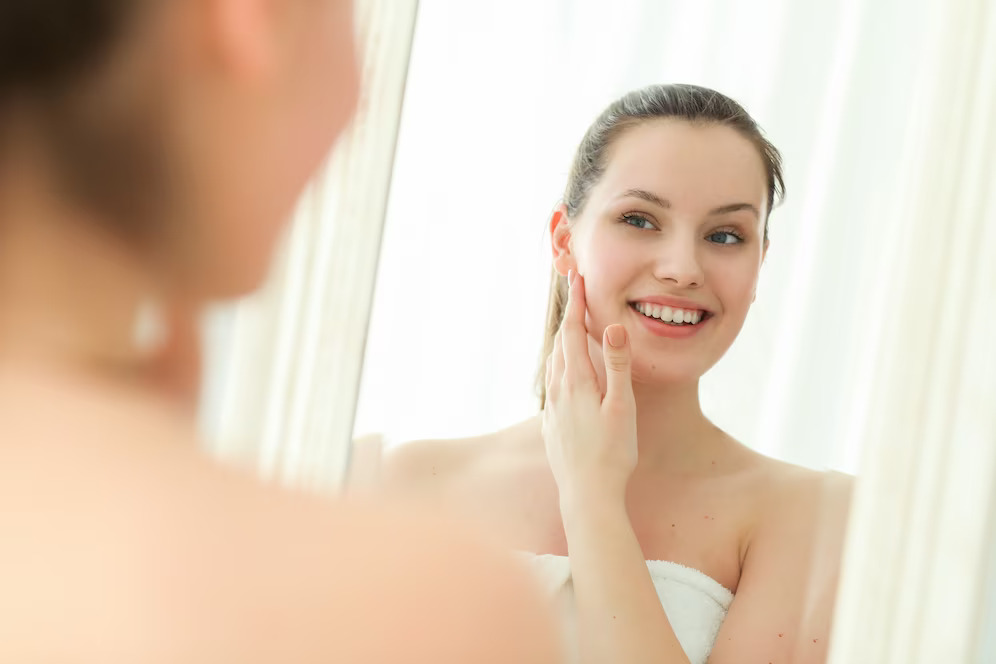Introduction to the Paleo Diet
What is the Paleo Diet?
The Paleo Diet, often referred to as the “caveman diet,” is a nutritional plan based on the eating habits of our prehistoric ancestors. It emphasizes whole, unprocessed foods that could be hunted or gathered, such as lean meats, fish, fruits, vegetables, nuts, and seeds. The goal is to return to a way of eating that more closely matches the diet humans evolved to eat, promoting overall health and well-being.
History and Origin of the Paleo Diet
The Paleo Diet was popularized in the 1970s by gastroenterologist Dr. Walter L. Voegtlin and has since been developed by researchers like Dr. Loren Cordain. These pioneers studied the dietary habits of early humans and posited that modern health issues stem from the consumption of processed foods, grains, and sugars, which were absent in the Paleolithic era.
Principles of the Paleo Diet
Core Principles
The core principles of the Paleo Diet focus on consuming foods that our bodies are genetically adapted to. This means prioritizing:
- Whole, unprocessed foods
- High-quality protein sources
- Healthy fats from nuts, seeds, and certain oils
- Plenty of fruits and vegetables
- Eliminating grains, legumes, and dairy
What to Eat and Avoid
Foods to Eat:
- Lean meats (beef, chicken, pork)
- Fish and seafood
- Fresh fruits and vegetables
- Nuts and seeds
- Eggs
- Healthy oils (olive, coconut, avocado)
Foods to Avoid:
- Processed foods
- Grains (wheat, oats, barley)
- Legumes (beans, lentils, peanuts)
- Dairy products
- Refined sugars
- Industrial seed oils (canola, soybean)
Health Benefits of the Paleo Diet
Weight Loss
One of the primary reasons people adopt the Paleo Diet is for weight loss. By eliminating processed foods and sugars, and focusing on nutrient-dense foods, the diet helps reduce calorie intake naturally and promotes fat loss.
Improved Digestion
Many followers of the Paleo Diet report better digestion and reduced gastrointestinal issues. The diet eliminates common irritants like gluten, dairy, and legumes, which can cause bloating, gas, and other digestive problems.
Increased Energy Levels
Switching to a diet rich in whole foods and healthy fats can lead to more stable blood sugar levels and sustained energy throughout the day. This can reduce the mid-afternoon energy slump and improve overall vitality.
Better Skin Health
The nutrient-dense foods in the Paleo Diet, particularly fruits and vegetables, provide essential vitamins and antioxidants that can improve skin health. Additionally, avoiding dairy and processed foods can help reduce acne and other skin conditions.
Foods to Eat on the Paleo Diet
Lean Meats
Lean meats are a cornerstone of the Paleo Diet. They provide essential proteins and nutrients without the added fats found in processed meats. Opt for grass-fed beef, free-range poultry, and pasture-raised pork to ensure the highest quality.
Fish and Seafood
Rich in omega-3 fatty acids, fish and seafood are excellent for heart health and cognitive function. Salmon, mackerel, sardines, and shellfish should be regulars in a Paleo diet.
Fresh Fruits and Vegetables
These should make up a significant portion of your diet. They are packed with vitamins, minerals, and fiber, supporting overall health and digestion.
Nuts and Seeds
Nuts and seeds are great sources of healthy fats, proteins, and fiber. They make perfect snacks or can be added to meals for extra crunch and nutrition.
Foods to Avoid on the Paleo Diet
Processed Foods
Processed foods are a no-go on the Paleo Diet. They often contain unhealthy fats, sugars, and artificial ingredients that can harm your health and disrupt your body’s natural functions.
Dairy Products
Though dairy was not part of the Paleolithic diet, modern variants are often high in fat and sugars. They can also cause digestive issues for many people.
Grains
Grains like wheat, rice, and oats are excluded due to their high carbohydrate content and potential to cause inflammation and digestive issues.
Legumes
Legumes, including beans, lentils, and peanuts, contain antinutrients that can interfere with digestion and nutrient absorption, making them unsuitable for a Paleo lifestyle.
How to Start the Paleo Diet
Transitioning to Paleo
Starting the Paleo Diet can be a gradual process. Begin by removing processed foods and sugars, then gradually eliminate grains, legumes, and dairy. Focus on incorporating more fresh, whole foods into your meals.
Shopping Tips
When shopping for Paleo-friendly foods, stick to the outer aisles of the grocery store where fresh produce, meats, and seafood are usually found. Avoid the inner aisles where processed foods are often located.
Meal Planning and Preparation
Meal planning is essential for success on the Paleo Diet. Prepare a weekly menu, make a shopping list, and do meal prep to ensure you always have Paleo-friendly options available. This can help you avoid the temptation of non-Paleo foods.
Paleo Diet Recipes
Breakfast Ideas
Start your day with a nutritious Paleo breakfast. Try dishes like scrambled eggs with spinach and mushrooms, a smoothie made with almond milk, berries, and spinach, or a hearty sweet potato hash with avocado.
Lunch Recipes
For lunch, enjoy meals like grilled chicken salad with a variety of fresh vegetables, zucchini noodles with marinara sauce and meatballs, or a salmon and avocado bowl.
Dinner Dishes
Dinner can include dishes like roasted pork tenderloin with a side of steamed broccoli, baked cod with a citrus salsa, or a hearty beef stew with plenty of vegetables.
Snacks and Desserts
Paleo-friendly snacks and desserts can satisfy your cravings without breaking your diet. Enjoy snacks like apple slices with almond butter, homemade trail mix, or fresh berries. For dessert, try a Paleo banana bread or chocolate avocado mousse.
Common Myths About the Paleo Diet
Misconceptions
There are many misconceptions about the Paleo Diet, such as the belief that it is too restrictive or that it lacks variety. In reality, the diet includes a wide range of foods and can be very satisfying.
Debunking Myths
Another common myth is that the Paleo Diet is only about eating meat. While lean meats are a key component, the diet also emphasizes fruits, vegetables, nuts, and seeds, providing a balanced and diverse nutritional profile.
Paleo Diet and Modern Science
Scientific Studies
Numerous studies have shown the benefits of the Paleo Diet, including improved heart health, weight loss, and better blood sugar control. These studies support the idea that a diet similar to that of our ancestors can be beneficial for modern health issues.
Expert Opinions
Many nutrition experts endorse the Paleo Diet for its focus on whole foods and nutrient density. They argue that eliminating processed foods and sugars can have a profound impact on health.
Comparisons to Other Diets
Compared to other diets, the Paleo Diet stands out for its emphasis on natural, unprocessed foods. Unlike diets that focus on calorie counting or specific macronutrient ratios, Paleo encourages a holistic approach to eating.
Challenges of the Paleo Diet
Common Issues
Some people may find it challenging to eliminate grains, legumes, and dairy from their diet. Others might struggle with the cost of high-quality meats and organic produce.
How to Overcome Challenges
To overcome these challenges, plan your meals carefully, look for sales and discounts on Paleo-friendly foods, and consider batch cooking to save time and money. Joining a Paleo community can also provide support and inspiration.
Paleo Diet for Athletes
Benefits for Athletes
Athletes can benefit greatly from the Paleo Diet, as it provides high-quality proteins and fats that support muscle repair and energy levels. The diet’s emphasis on nutrient-dense foods can also improve recovery times and overall performance.
Sample Meal Plans
Athlete meal plans might include protein-packed breakfasts like egg and vegetable scrambles, nutrient-dense lunches such as grilled chicken salads, and dinners featuring lean meats with a variety of vegetables.
Success Stories
Many athletes have reported improved performance and faster recovery times after switching to the Paleo Diet. These success stories can be motivating for those considering the diet.
Paleo Diet for Weight Loss
How It Promotes Weight Loss
The Paleo Diet promotes weight loss by eliminating processed foods and sugars, which are often high in empty calories. By focusing on nutrient-dense foods, the diet helps control hunger and reduce overall calorie intake.
Tips for Success
To succeed on the Paleo Diet for weight loss, stay committed to the core principles, plan your meals, and avoid the temptation of non-Paleo foods. Regular exercise can also enhance your results.
Real-Life Results
Many individuals have shared their weight loss success stories with the Paleo Diet, highlighting significant weight loss, improved energy levels, and better overall health.
Paleo Diet and Mental Health
Connection Between Diet and Mental Health
There is a growing body of evidence linking diet to mental health. The Paleo Diet, rich in nutrients and free from processed foods, can support brain health and improve mood.
Benefits for Mood and Cognition
Followers of the Paleo Diet often report better mood stability and improved cognitive function. The diet’s focus on whole foods can reduce inflammation and provide essential nutrients for brain health.
Paleo Diet on a Budget
Cost-Saving Tips
Eating Paleo on a budget is possible with some planning. Buy in bulk, opt for seasonal produce, and take advantage of sales. Cooking at home instead of eating out can also save money.
Affordable Paleo Foods
Affordable Paleo-friendly foods include eggs, canned fish, frozen vegetables, and certain cuts of meat. These items can provide the necessary nutrients without breaking the bank.
Meal Prep on a Budget
Meal prepping can help stretch your food budget further. Prepare large batches of meals and portion them out for the week to ensure you always have Paleo options available.
The Paleo Diet offers a return to the nutritional habits of our ancestors, providing numerous health benefits such as weight loss, improved digestion, increased energy, and better mental health. By focusing on whole, unprocessed foods, the Paleo Diet can help you achieve a healthier, more balanced lifestyle. Whether you’re an athlete looking to improve performance, someone seeking to lose weight, or simply wanting to eat more healthfully, the Paleo Diet provides a sustainable and nutritious approach to eating.
FAQs About the Paleo Diet
What is the Paleo Diet?
The Paleo Diet is a nutritional plan based on the eating habits of our prehistoric ancestors, focusing on whole, unprocessed foods.
Can I lose weight on the Paleo Diet?
Yes, many people experience weight loss on the Paleo Diet due to its focus on nutrient-dense foods and elimination of processed foods and sugars.
Is the Paleo Diet expensive?
The Paleo Diet can be more expensive due to the focus on high-quality meats and organic produce, but with careful planning and budgeting, it is possible to eat Paleo on a budget.
What are the main foods to avoid on the Paleo Diet?
The main foods to avoid include processed foods, grains, legumes, and dairy products.
Can athletes benefit from the Paleo Diet?
Yes, athletes can benefit from the high-quality proteins and fats in the Paleo Diet, which support muscle repair and energy levels.
How do I start the Paleo Diet?
Start by eliminating processed foods and sugars, then gradually remove grains, legumes, and dairy. Focus on incorporating more fresh, whole foods into your meals.
Disclaimer:
The information provided in this blog post about the Paleo Diet is for educational and informational purposes only. It is not intended as medical advice or a substitute for professional healthcare. Before making any significant changes to your diet or exercise routine, please consult with a qualified healthcare provider to ensure it is appropriate for your individual health needs and conditions. The author and publisher of this blog are not responsible for any adverse effects or consequences resulting from the use of the information presented. Individual results may vary.

David M is a seasoned author renowned for his expertise in health tips and homemade remedies. With a passion for wellness, he diligently researches and meticulously analyzes a plethora of online resources, ensuring their credibility. David’s dedication shines through as he curates invaluable information, catering to health enthusiasts.










